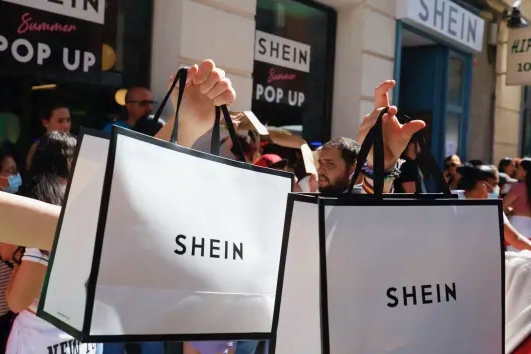Multiple groups of US lawmakers are scrutinising some of the world's largest brands regarding forced labour allegations and the origin of their cotton-based products. Senators have sent letters to the CEOs of major fashion and sportswear retailers, including Nike, Adidas, Shein, and Temu, to inquire about their compliance with the Uyghur Forced Labor Prevention Act (UFLP), which was signed into law by the Biden administration in 2021.
The letters accessed by AFP also indicate that the Senators address the Chinese firms Shein and Temu, about concerns that the two are using the de minimis import loophole in US trade law to dodge the UFLPA and continue selling goods under $800 made with Uyghur forced labour to American consumers.
“Using forced labour has been illegal for almost a hundred years—but despite knowing that their industries are implicated, too many companies look the other way hoping they don’t get caught, rather than cleaning up their supply chains. This is unacceptable,” said representative Gallagher.
“American businesses and companies selling in the American market have a moral and legal obligation to ensure they are not implicating themselves, their customers, or their shareholders in slave labour. Our message to industry in these letters is clear: either ensure your supply chains are clean—no matter how difficult it is—or get out of countries like China implicated in forced labour.”
"Shein is aggressively raising capital and plans to execute an IPO before the end of this calendar year," they said in the letter.
"We request that you set forth regulations and mandate Shein to certify via independent verification that the company does not use Uyghur forced labor as a condition of being registered to issue securities in the United States."
US relations with Chinese companies has been under watchful eyes for some time now. In 2020, the US Securities and Exchange Commission (SEC) mandated Chinese companies to submit to more extensive audits. But Chinese companies struggle to provide that kind of request due to political concerns with the ruling national party back home. This is also a big impediment in Shein going public in the US—it has planned to do so since 2020, with hopes igniting once more for a 2024 IPO, but these intricacies show just how tough it is for a Chinese company to list on the NYSE.
Across the board, the fashion industry is responsible for releasing more than 10% of carbon emissions. But that's just one aspect of the true cost of unsustainable business practices.
While greenwashing deceives the public as the planet moves towards climate catastrophe; the humanitarian cost of unethical businesses and the advertising dollar spent to market those practices into appearing eco-concious and sustainable while misleading the consumer is huge. It's bad for consumers and by extension, the planet. ESG fraud comes in many colours and this is referred to as 'bluewashing'.
Catch an in-depth discussion on 'Bluewashing: The what, the how and the impact of it at Campaign 360. Get the complete agenda and register.

